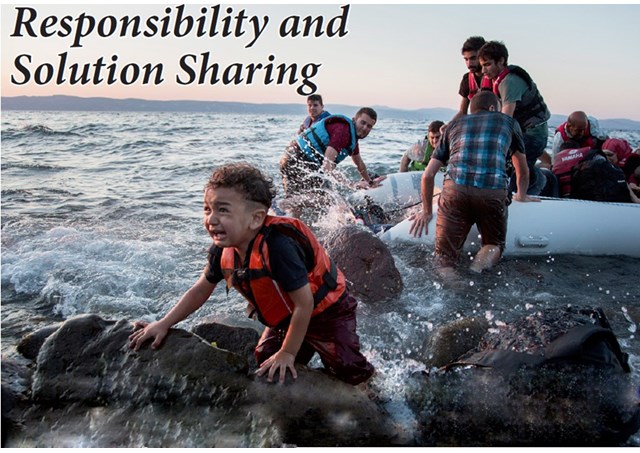
Vatican to raise role of faith groups at UN migration summit

(Vatican Radio) The United Nations is hosting a summit of world leaders on Monday to tackle global issues around refugees and migrants, with the aim of bringing countries together behind a more humane and coordinated approach.
The one day meeting at the UN headquarters in New York marks the first time the General Assembly has called for a summit on this issue. Organisers hope it will point the way towards a more responsible and predictable system for responding to large movements of refugees and migrants.
Vatican Secretary of State, Cardinal Pietro Parolin, is heading the Holy See delegation at the summit and he’s also speaking at a high-level side event on the role of faith based organisations in supporting all people on the move. The event is sponsored by the Vatican’s Permanent Observer mission to the UN, together with Caritas Internationalis and the Geneva based International Catholic Migration Commission.
Philippa Hitchen spoke to Mgr Robert Vitillo, secretary general of the ICMC to find out more ….
Mgr Vitillo says some 120 heads of state and other experts will be attending the summit so the Holy See is taking this opportunity to organize an event that will be focused on 'Responsibility and Solution Sharing'. The Church and other faith groups, he notes, are often in the forefront of responding to the needs of migrants and refugees, both in the emergency phases, as well as in the search for long term solutions for those who cannot return to their homes.
Mgr Vitillo, who is part of the Holy See delegation, points out that Pope Francis has taken a vital global leadership role on this issue, in words but also in deeds, by sponsoring refugee families in Vatican City and challenging every Catholic parish and religious order to do the same.
The message of Pope Francis’ encyclical Laudato Si’, he adds, is that all major global problems today cannot be solved by governments alone, but require a “solidarity approach” with governments working together alongside civil society and faith based structures.
Mgr Vitillo underlines the summit’s recognition that this is global issue. While media attention has largely been focused on Europe, he says, this meeting will show that it’s only a small part of problem, with developing countries continuing to shoulder the greatest burden of taking in refugees. He also hopes the summit will look at migrants and refugees, not just as a problem, but as a necessity for many high income countries and a source of cultural enrichment for all.
UN documents, Mgr Vitillo comments, are often seen as the lowest common denominator in order to achieve consensus and many civil society organisations are already disappointed with the document that's due to be approved by heads of state on Monday. Rather than being seen as an end it itself, he says it should be seen as the beginning of a process to get states to implement what they’ve signed up to, working with civil society to monitor and evaluate solutions.
Another positive development he points to is the fact that refugees fleeing from persecution were previously considered separately from migrants, but this document talks about both, recognizing that other factors like climate change, abject poverty, or long term displacement force people to leave their homes. By looking at this as a holistic problem, he concludes, “I hope some holistic solutions can flow from it”.
| All the contents on this site are copyrighted ©. |


